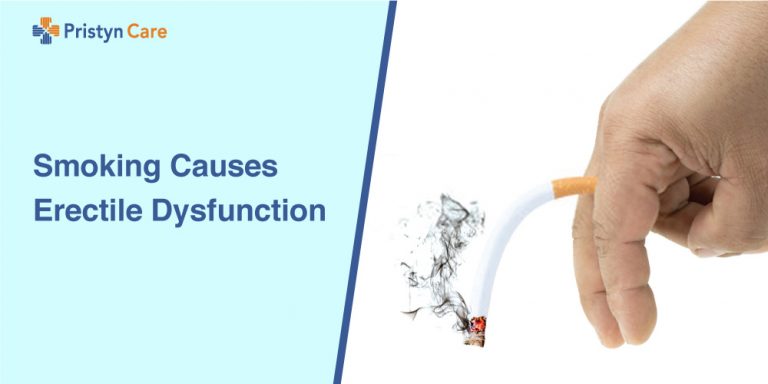Most cases of ed are secondary. This means that erectile function has been normal but becomes problematic. Causes of a new and persistent problem are usually physical. In rare cases, a person may have primary ed. This is where a person has never achieved an erection. The cause of primary ed may be psychological or the result of a physical condition.
A person should consult a medical professional if they experience persistent erection problems, as an underlying medical condition could be causing the issue. A proper diagnosis can help address any underlying medical issues and help resolve sexual difficulties.
About 80% of the time, a physical issue triggers ed, the most common being chronic high blood pressure, or hypertension. Men with hypertension are at least two times more likely to have ed than men with normal blood pressure. Researchers believe these numbers could be much higher since men often don’t report ed to their health care providers. Hypertension damages your blood vessels, making it difficult for the arteries that supply your penis to function normally. As a result, your penis can’t get enough blood to make or keep it erect. Men with hypertension are twice as likely to have low testosterone compared to men without this condition.
Emotional Causes of ED
In case of lack of any anatomical deformity, the causes of ed can be purely psychological. This is because a man might have experienced ed at some point in life and failed to maintain an erection. It is also a condition, i. E. , primary ed. Here are some psychological factors that affect a man’s erection and cause ed.
 Severe anxiety
guilt
fear of intimacy
most of the ed cases are secondary, which refers to problematic erections. In reality, certain common psychological factors may cause ed, such as emotional stress, work stress,
body
fatigue, anxiety, etc. Additionally, there can be an overlap of several factors which may cause a persistent condition of ed.
Severe anxiety
guilt
fear of intimacy
most of the ed cases are secondary, which refers to problematic erections. In reality, certain common psychological factors may cause ed, such as emotional stress, work stress,
body
fatigue, anxiety, etc. Additionally, there can be an overlap of several factors which may cause a persistent condition of ed.
Many of the nerve signals needed for an erection come from the brain. Emotional problems may play a role in men who suddenly develop impotence.
Health and ED History
There are several different possible causes of ed. They may be physical, psychological, or both. Certain medications put you at greater risk, especially when they interact with your hormone levels, blood circulation, or nervous system. In addition, some medical conditions inhibit blood flow to the penis, which may interfere with your normal arousal response. Age also impacts your ability to get and maintain an erection. The most common psychological cause of ed is anxiety. You may experience sexual performance anxiety or have anxiety related to something else that interferes with your ability to achieve or maintain an erection. Because your state of mind has such a significant influence on your sexual drive, relationship issues, a history of trauma, or mental health issues may contribute to erectile dysfunction.
Ed is common and has a significant impact on men and their partners. The first step is acknowledging that ed is affecting you and that it bothers you. If so, then it is time to get help. Often your primary care health provider can start the evaluation of your ed to determine if there are any potential reversible causes. It is important to be evaluated if you have ed as ed is often caused by medical conditions, which if not recognized and treated, could cause you harm. Did you know that the ed is a strong predictor of underlying cardiovascular disease? if you have underlying cardiovascular disease, your primary health care provider or a specialist (if needed) needs to make sure it is safe for you to participate in sexual activity.
If you have any medical questions or concerns, please talk to your healthcare provider. The articles on health guide are underpinned by peer-reviewed research and information drawn from medical societies and governmental agencies. However, they are not a substitute for professional medical advice, diagnosis, or treatment. Getting (and maintaining) an erection requires a surprising amount of things to go right. Your brain sends signals through your nerves and hormones, which have to communicate with your blood vessels and muscles before an erection can happen. If one thing goes wrong in that complicated exchange between your cardiovascular and nervous systems—not to mention your hormone levels, blood vessels, and mood—the result can be erectile dysfunction (ed).


 The make up of sperm
semen is made up of ninety percent (90%) seminal fluids including fructose (sugar) protein, and various trace minerals and nutrients.
The make up of sperm
semen is made up of ninety percent (90%) seminal fluids including fructose (sugar) protein, and various trace minerals and nutrients. The two main surgeries for
ed are:
The two main surgeries for
ed are:
 The time that defines premature ejaculation is obviously very subjective. A normal time to ejaculation for
one
The time that defines premature ejaculation is obviously very subjective. A normal time to ejaculation for
one

 There are 3 potential causes to this problem; anatomic (following bladder neck surgery or from a congenital process), neurologic (due to disorders that interfere with the ability of the bladder neck to close during emission, such as diabetes mellitus, retroperitoneal surgery) and pharmacologic (due to paralysis of the bladder neck by certain medications). This process is diagnosed by the finding of seminal fluid and/or
There are 3 potential causes to this problem; anatomic (following bladder neck surgery or from a congenital process), neurologic (due to disorders that interfere with the ability of the bladder neck to close during emission, such as diabetes mellitus, retroperitoneal surgery) and pharmacologic (due to paralysis of the bladder neck by certain medications). This process is diagnosed by the finding of seminal fluid and/or
 Between 35 and 50 per cent of men with ms experience problems with ejaculation. Problems can include delayed ejaculation or not being able to ejaculate at all. Being able to maintain an erection for longer can help, but ejaculation may remain a problem. Although ms does not affect fertility itself, unsurprisingly if you can't ejaculate you might have a problem trying to father a child.
Between 35 and 50 per cent of men with ms experience problems with ejaculation. Problems can include delayed ejaculation or not being able to ejaculate at all. Being able to maintain an erection for longer can help, but ejaculation may remain a problem. Although ms does not affect fertility itself, unsurprisingly if you can't ejaculate you might have a problem trying to father a child. Ageing can also have a part to play. The penis may lose some of its sensitivity with age and testosterone levels decrease in older men, slowing the arousal process. Equally, a female partner’s vagina may become more slack with age, providing less sensation during penetrative sex. Pelvic floor exercises are a good way for women to maintain condition in the muscles around the vagina.
Ageing can also have a part to play. The penis may lose some of its sensitivity with age and testosterone levels decrease in older men, slowing the arousal process. Equally, a female partner’s vagina may become more slack with age, providing less sensation during penetrative sex. Pelvic floor exercises are a good way for women to maintain condition in the muscles around the vagina.